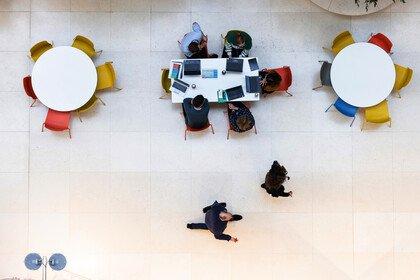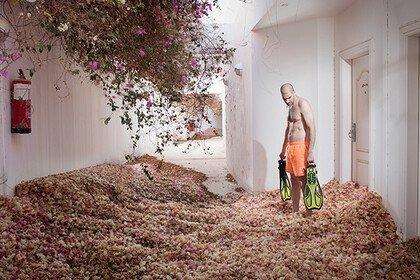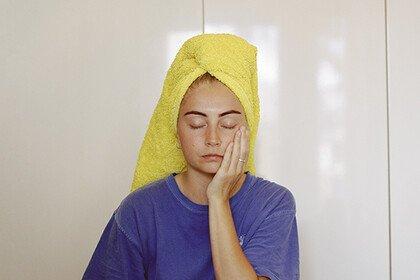
Images of mental health: how do we tell stories without stigma and stereotypes?
The images shortlisted for the Wellcome Photography Prize 2020 told rich, nuanced stories about living with and recovering from mental health problems.
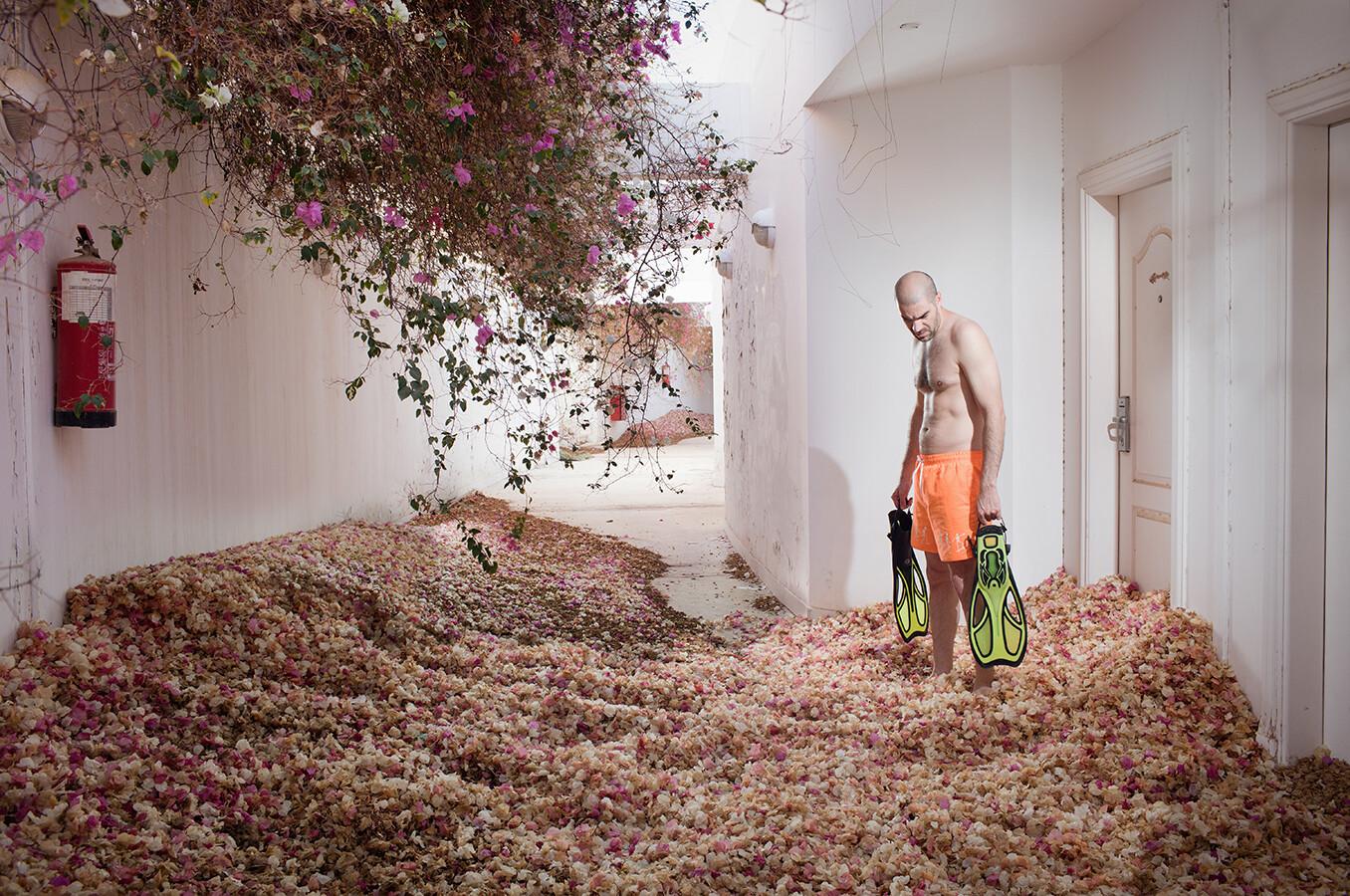
Arseniy Neskhodimov / Wellcome Photography Prize 2020
Mental health was the main theme of the Wellcome Photography Prize 2020. We invited photographers to capture visual stories which go beyond stigma and stereotypes; stories that show experiences of living with and recovering from mental health challenges.
Arseniy Neskhodimov did just that, with honesty and humour, winning the overall prize and the mental health series category with his 'Prozac' series. "My self-portraits are a kind of therapy that help me fight off the attacks of despair and loss of meaning, especially in this difficult pandemic time," he said.
We asked colleagues at Wellcome what their favourite shortlisted images were and why. Here’s what they said.

Moscow, Russia, and Sharm El Sheik, Egypt, 2018–19
In his parents’ basement, he lies buried under a pile of Christmas trees that were briefly admired but then thrown away, no longer wanted. This is how the new year begins for them – with all the potential of their life wasted.
Arseniy Neskhodimov / Wellcome Photography Prize 2020
Cat Sebastian, Evidence Lead, Mental Health: "The juxtaposition of humour and despair drew me to this series, the sense that even at his lowest point the photographer is wryly observing and commenting on his reactions.
The holiday theme resonates with a key aspect of depression, of not being able to find pleasure in enjoyable and previously enjoyed activities. In this series, the photographer is in turns too sad, too anxious, too late, too encumbered by self-reflection to live in the moment and enjoy: wherever he is, he’s still there. But I sense some hope in these images too, of striving to find his own path to recovery."
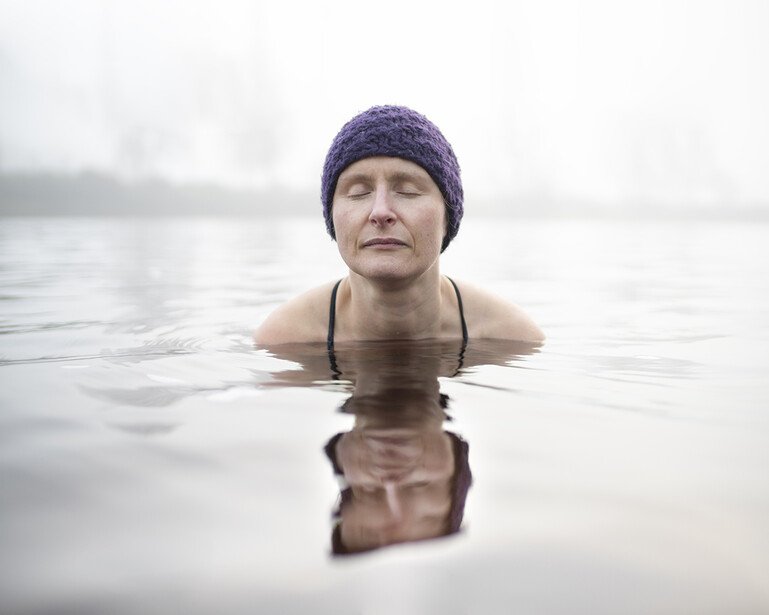
Nina swims in cold water in the River Spey in Scotland every day to reduce her anxiety and severe depression.
Tom Merilion / Wellcome Photography Prize 2020
Cristina Doherty, Graduate Trainee: "This picture really encapsulates the way in which people living with anxiety and depression find ways to manage their experiences. I can feel the icy coldness of the water while looking at it, which feels calming and energising at the same time for me.
Nina appears utterly present in the moment, although the distorted reflection highlights disjuncture between this moment and beneath the surface."
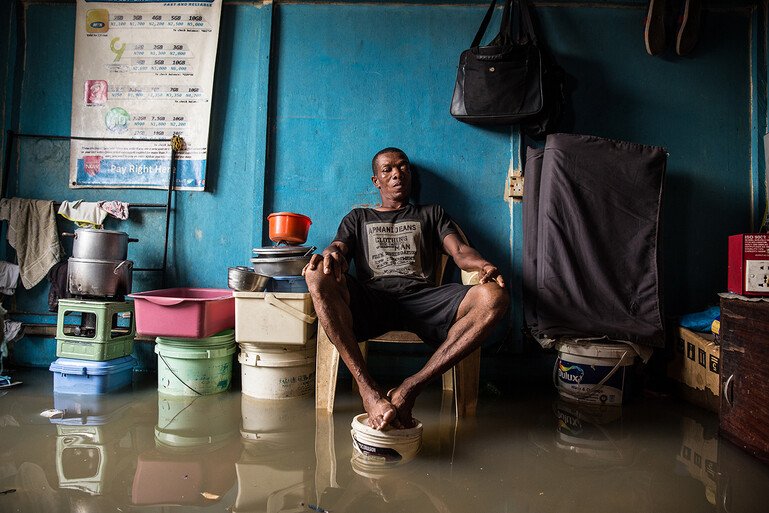
Lagos, Nigeria, 2019
A resident sits in his room with his feet up on a paint bucket to avoid the floodwater.
Nyancho NwaNri / Wellcome Photography Prize 2020
Ed Whiting, Director of Strategy: "I found this picture by Nyancho NwaNri particularly powerful in illustrating the huge impact that extreme weather can have on our physical and mental health.
We are thinking a lot at Wellcome about how we can help to tackle big health challenges. One thing that we’ve been acutely aware of, particularly in this Covid-19 world, is the way that these challenges – for example infectious diseases, mental health and climate change – so often intersect.
I thought the photo captured that reality beautifully, and with it, the wider point that our own mental health appears to be so intimately affected and determined by our environment, and it isn’t just about the biological processes of our brain."
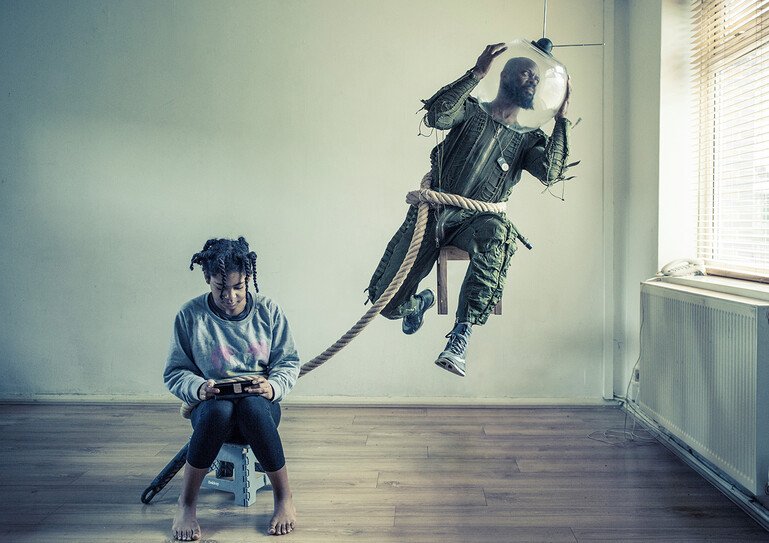
Benji Reid
Benji Reid suffers from long bouts of depression, and after a particularly difficult period he created this image as a 'love note' to his daughter for being there in his time of need. Both of them are engaged in acts of escapism – her mundanely, through her phone, and him fantastically, as a 'broken astronaut', floating up into the air. But he’s tethered to her, and the simple, comforting fact of her presence keeps him in the real world.
Depression is common, which means that having a close relative who’s depressed is even more common. The condition may feel isolating, but it’s not an individual experience. Family members can feel worry, fear and gloom themselves, and they may find themselves becoming unofficial carers. But you do what you can for the people you love. Supportive relationships can be literally lifesaving.
Benji Reid / Wellcome Photography Prize 2020
Grace Gatera, Lived Experience Expert Advisor: "This image is very relatable for someone who struggles regularly with depression and has had suicidal thoughts. We all need tethers, and just like Benji in the photograph, mine are my family.
I like that this picture depicts rawness, but also raw tenderness. I like that this is not a typical ‘head clutcher’ shot, as it humanizes both subjects in raw and honest ways. This shows to me that young people are the key, which is something Wellcome’s mental health work echoes in its programmes, and that they hold an infinite amount of power, even though they may not know that they do."
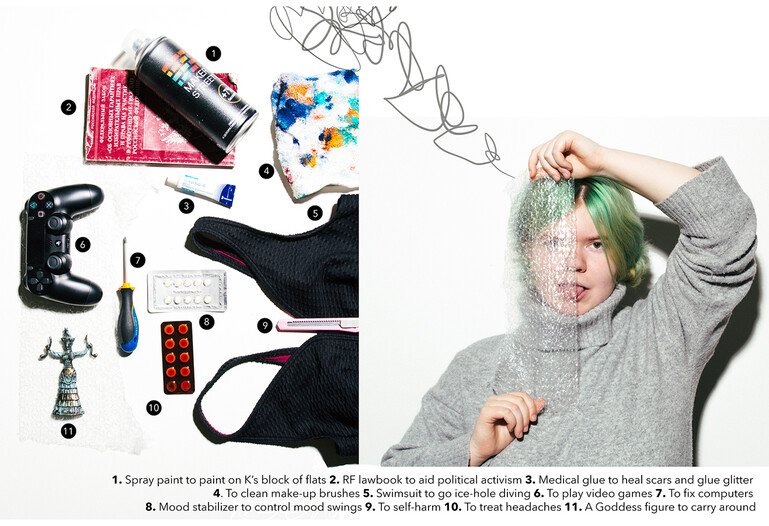
Moscow, Russia, 2019
Ksusha has bipolar disorder. She works as a computer technician at a liberal political party. Her hobbies are ice-hole diving and artistic makeup.
Sebastian Mar / Wellcome Photography Prize 2020
Miranda Wolpert, Director of Mental Health: "These images [from Sebastian Mar's 'Mental Health Kit' series] really resonated with me because they speak to the specificity of individual responses, and the creativity and strength of individuals in the face of mental health problems.
When I worked as a clinical psychologist, the thing that struck me the most was how people coped with really challenging issues and circumstances. These kits speak to the powerful mix of vulnerability and strength that most of us have. The images are relatable to everyone, everywhere. Perhaps we should all map out our own mental health first aid kit (albeit not with such creative skill)."
Special thanks to Charlotte Payne for collating these quotes.
